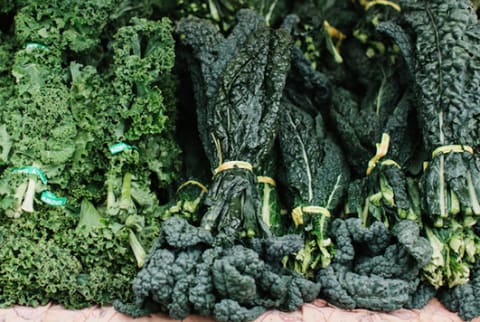Advertisement


1. Patagonia donated the $10 million it made on Black Friday to environmental groups.
After Patagonia's sales hit five times what it had expected, the company pledged to give away 100 percent of profits to grass-roots environmental groups fighting to protect vital natural resources like water, air, and soil. The effort isn't entirely out of character for the brand—it already donates 1 percent of its daily global sales to environmental organizations, which amounted to $7.1 million in its latest fiscal year. (CNN)
2. Finally, an explanation for why you like to drink more than you friends.
According to new research, a gene called beta-Klotho may determine why some people like to party all night long and others call it quits after a glass of wine. If you have this gene, it acts as a "brake" on your alcohol consumption. (NBC)
3. Is this the next wave of fitness trackers?
The wearable tech company Athos is working to create clothes that have built-in fitness trackers that can detect how different muscles are used throughout your workout, and this data will go straight to a smartphone app. Ah, technology! (Nature World News)
4. Childhood memories, even those we've forgotten, shape us.
While it's difficult for us to recall our lives before the age of 3, those early experiences form our impression of the world around us. Childhood amnesia is still little understood, but the process of neurogenesis is thought to clear out early memories to make room in the brain for adult memories. (The Atlantic)
5. Say hello to kale 2.0.
A horticulture professor and agriculture student at Cornell have teamed up to design a new and improved version of kale that's more suited to American palates. The duo gathered a group of taste-testers and asked them how they would improve the taste and appearance of the veggie. Most of them liked the idea of a softer, less fibrous leaf. (NPR)
6. It's totally OK to live in the past every once in a while.
A new study finds that nostalgia, an emotion that many of us are a bit wary of, can actually serve as a way to make us more connected to the present moment as well as the past. Researchers found that recognizing the past and its relation to the present leads to self-continuity, energy, and spirit. (Scientific American)
7. A slew of early onset Alzheimer's cases in Colombia was traced back to one family.
By using family trees and church records of village births and deaths, researchers found that the genetic mutation connected to early onset Alzheimer's can be traced back to one family in the 1800s. This discovery may help further researchers' progress in preventing the disease one day. (CBS)
8. The awkward younger boss/older subordinate dynamic can negatively affect professional progress both individually and for your company.
Evidently, ageism is real and thriving. Whether you've been the boss or subordinate in this position, there's no denying the awkwardness of this power dynamic. While this tension has been shown to breed negative emotion and subsequently subpar performance, research also shows that keeping emotions out of it actually kept the work and performance vibes high. Fake it till you make it. (Washington Post)
9. Saturnian moon Titan could play host to human life.
Titan, at a temperature of nearly 300 degrees sub-Fahrenheit and freckled with hydrocarbon seas, is being considered the next frontier of human expansion. A new article compares the viability of these destinations through an ecological lens. Titan has two things humans require for survival that neither the Moon nor Mars offers: liquid on its surface and protection from radiation. (Scientific American)
Watch Next
Enjoy some of our favorite clips from classes
Enjoy some of our favorite clips from classes
What Is Meditation?
Mindfulness/Spirituality | Light Watkins
Box Breathing
Mindfulness/Spirituality | Gwen Dittmar
What Breathwork Can Address
Mindfulness/Spirituality | Gwen Dittmar
The 8 Limbs of Yoga - What is Asana?
Yoga | Caley Alyssa
Two Standing Postures to Open Up Tight Hips
Yoga | Caley Alyssa
How Plants Can Optimize Athletic Performance
Nutrition | Rich Roll
What to Eat Before a Workout
Nutrition | Rich Roll
How Ayurveda Helps Us Navigate Modern Life
Nutrition | Sahara Rose
Messages About Love & Relationships
Love & Relationships | Esther Perel
Love Languages
Love & Relationships | Esther Perel

















